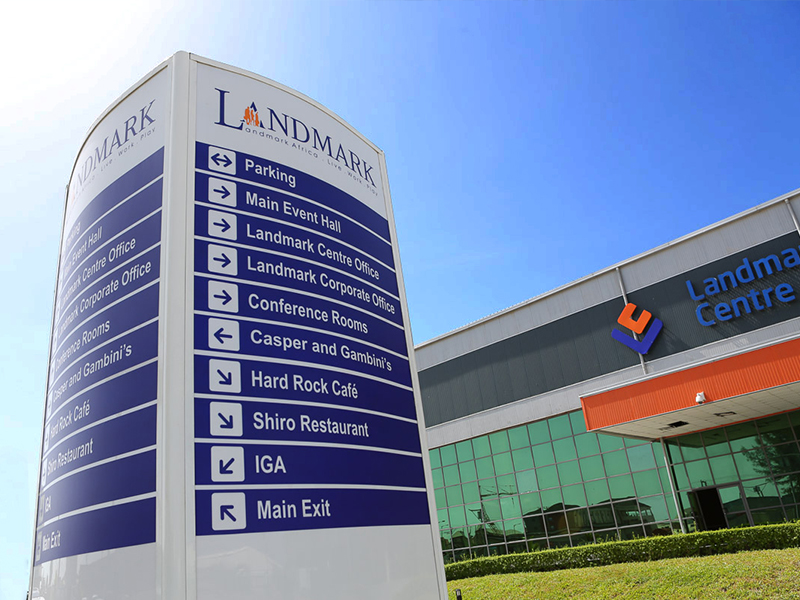The Demolition of Landmark Beach: A Case Study in Nigerian Land Disputes
The demolition of parts of the Landmark Africa Group’s premises in Lagos, Nigeria, to make way for the Lagos-Calabar Coastal Highway sparked a heated controversy, raising questions about land ownership, due process, and the treatment of businesses by the government. At the heart of the dispute lies a disagreement between the Landmark Group and the Federal Government over the ownership of the waterfront property where the Landmark Beach resort was situated. Paul Onwuanibe, the Chief Executive Officer of Landmark Africa Group, vehemently contested the government’s claims, asserting that the company legitimately purchased the land in 2006 for $17 million and invested a further $30 million in developing the beach resort.
Onwuanibe lamented the sudden seven-day notice given before the demolition, emphasizing the significant economic contributions of the Landmark Beach resort. He revealed that the company paid over N10 billion in taxes the year preceding the demolition, employed 4,000 people, and hosted 4.5 million visitors annually. The resort also fostered a thriving ecosystem of businesses, both formal and informal, that were severely impacted by the abrupt closure. Onwuanibe highlighted the devastating impact on beach members, who had over N9.2 billion deposited in the resort’s accounts, as well as the disruption to over 200 contracts for essential services. The lack of any compensation from the government further exacerbated the situation, raising concerns about the security of investments in Nigeria.
The Federal Government, represented by the Minister of Works, David Umahi, presented a starkly different narrative. Umahi argued that the waterfront property in question legally belonged to the Federal Government, citing a Supreme Court judgment and constitutional provisions. He accused Landmark Group of illegally occupying the land, which formed part of the Eko Atlantic project designed to protect Victoria Island and Lekki. Umahi maintained that the government’s actions were justified, claiming that Landmark Group had encroached on federal territory, necessitating the demolition to facilitate the construction of the coastal highway.
This clashing of narratives exposes the complexities of land disputes in Nigeria, where conflicting claims and bureaucratic processes often obscure the truth. Onwuanibe’s assertions about legitimate purchase and substantial investment stand in stark contrast to Umahi’s claims of illegal occupation. The absence of clear communication and due process further complicates the issue, leaving both parties entrenched in their positions. The seven-day demolition notice, deemed inadequate by Onwuanibe, highlights the government’s seemingly dismissive attitude towards the business’s substantial investments and economic contributions.
The Landmark Beach demolition raises critical questions about the investment climate in Nigeria. Onwuanibe’s experience could deter foreign direct investment, as it underscores the risks associated with land ownership disputes and the potential for abrupt government action. The lack of transparency and due process, coupled with the absence of compensation, creates an environment of uncertainty that can discourage investors from committing capital to projects in the country. The government’s actions, if perceived as arbitrary or unjust, can erode investor confidence and hinder economic development.
The dispute also reveals the challenges of balancing development goals with the rights and interests of businesses. While the construction of the Lagos-Calabar Coastal Highway is undoubtedly an important infrastructure project, the manner in which the Landmark Beach demolition was handled raises concerns about the government’s commitment to protecting private property and fostering a conducive business environment. The lack of adequate notice, consultation, and compensation suggests a prioritization of development over the economic well-being of affected businesses and individuals.
The Landmark Beach controversy underscores the need for greater transparency and due process in land acquisition and development projects in Nigeria. Clearer regulations, efficient dispute resolution mechanisms, and a commitment to fair compensation are essential to ensuring that development projects are implemented in a manner that respects the rights of all stakeholders and promotes sustainable economic growth. The government must strike a balance between its developmental objectives and the need to create a stable and predictable investment climate. Without such a balance, incidents like the Landmark Beach demolition will continue to undermine investor confidence and hinder Nigeria’s economic progress.














